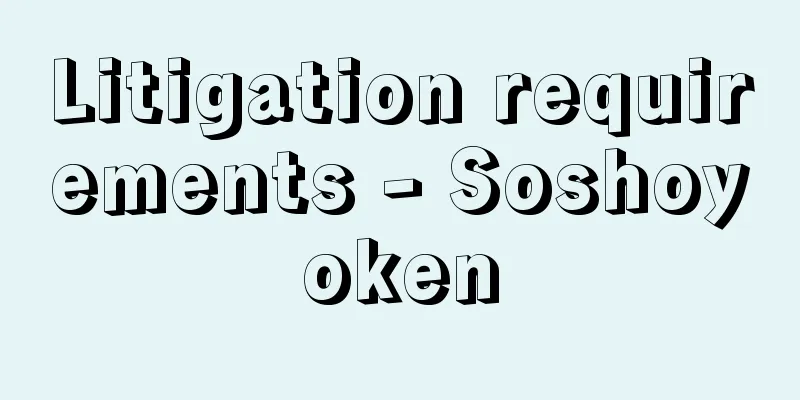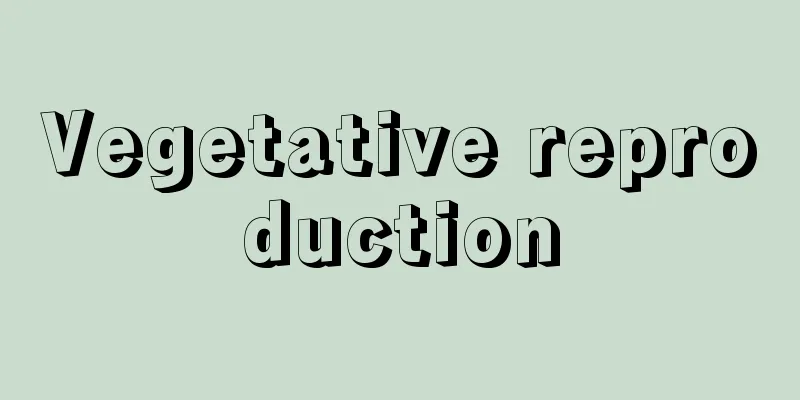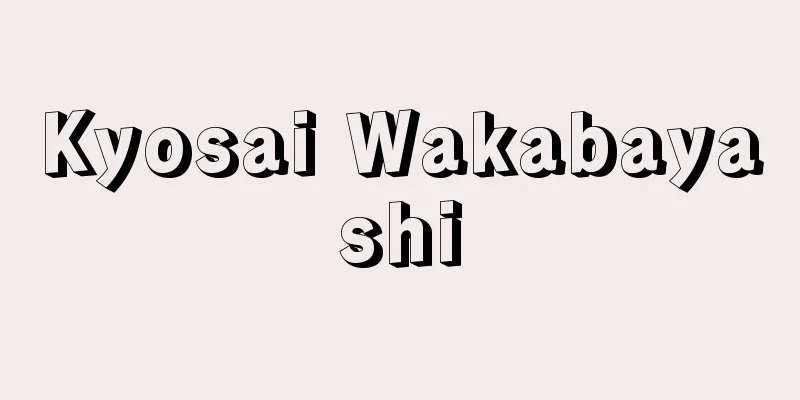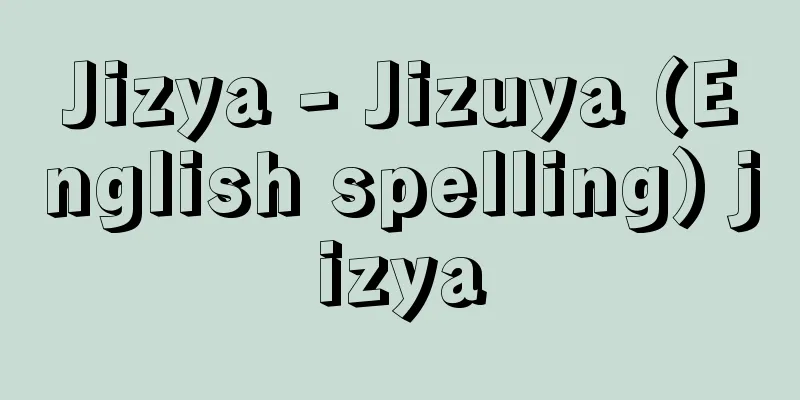Litigation requirements - Soshoyoken

|
Under the Civil Procedure Act, this refers to the requirements necessary to receive a trial to determine the validity of the plaintiff's claim (a trial to determine the existence of the rights and obligations asserted by the plaintiff, called a judgment on the merits). Even if the plaintiff requests a trial on the claim, for example, if the court does not have the authority to try the case, it cannot make a judgment on the claim itself, and if a trial does not contribute to resolving the dispute, it will be a waste of time. There is no uniform provision on what constitutes a litigation requirement, but the scope is generally consistent depending on the explicit text or interpretation of the litigation law. The main ones are: In principle, the prerequisites for a lawsuit must be met at the end of oral argument, but if there is doubt as to whether they are met or if there is a dispute between the parties, the court may investigate on its own initiative. If the investigation shows that the prerequisites for a lawsuit are met, the court will issue an interlocutory judgment, or continue the trial and indicate its judgment in the reasons for the final judgment. If even one of the prerequisites is missing, it will issue an order to correct anything that can be corrected, and if it cannot be corrected, it will dismiss the lawsuit as improper (if the jurisdiction is different, the case will be transferred to a court with jurisdiction). In criminal procedure law, the term "conditions of proceedings" is used. [Yoshinobu Homma] [Reference] | |Source: Shogakukan Encyclopedia Nipponica About Encyclopedia Nipponica Information | Legend |
|
民事訴訟法上、原告の請求の当否を判断する裁判(原告の主張する権利・義務の存否を判断する裁判で、本案判決という)を受けるために必要とされる要件をいう。原告から請求について裁判要求があっても、たとえば、裁判所がその事件につき裁判する権限をもっていなければ請求自体について判断することができないし、また、審判しても紛争の解決に役だたないときは審判してもむだになる。 訴訟要件に何が該当するかについては、統一的な規定がないが、訴訟法の明文あるいは解釈により、その範囲がだいたい一致している。おもなものをあげれば、 訴訟要件は、原則として口頭弁論終結時において具備していなくてはならないが、裁判所は、その存否につき疑問があり、あるいは当事者間に争いがあるときは、職権ででも調査する。調査の結果、訴訟要件が備わっていれば、中間判決を出すか、そのまま審理を続け終局判決の理由中でその判断を示す。もし一つでも欠けていれば、補正できるものは補正命令を出し、補正できないときは、訴えを不適法として却下する(管轄違いのときは、管轄権のある裁判所へ事件を移送する)。 刑事訴訟法上は、訴訟条件という語を用いる。 [本間義信] [参照項目] | |出典 小学館 日本大百科全書(ニッポニカ)日本大百科全書(ニッポニカ)について 情報 | 凡例 |
Recommend
Subandhu
...Many other playwrights emerged, including Bhaṭ...
Artogeia napi japonica (English name) Artogeianapijaponica
…[Takakura Tadahiro]. … *Some of the terminology ...
āgama (English spelling) agama
...An early Buddhist scripture that compiles the ...
disguised symbolism
…The paintings of this period were mainly religio...
Bryce Canyon National Park - Bryce Canyon National Park
A national park in southern Utah, USA. It became a...
Cordia dichotoma Forst.f.
A medium-sized tree of the Boraginaceae family tha...
Rounded palatal semivowels - Enshin koukougaihanboin
…In the English word wet, the lips are rounded an...
Chinese (Pig) (English)
…In Japan before the war, it was the second most ...
Xipe Totec (English)
...The city also had a complete sewer system, pro...
Kubunden - Kubunden
This was the central land category in the Ritsury...
Romanesque art (English)
An art style from the European Middle Ages. The t...
One stroke - One stroke
One of the brush techniques of oriental painting,...
Yin-ma-jaya (Inner-house teahouse)
〘 noun 〙 An inn where male prostitutes called kage...
Doctor of Country - Doctor of Country
(1) The government's political advisors were ...
Labeyrie, A.
…However, when light from a celestial body passes...

![Hoechst [company] - Hoechst](/upload/images/67ccc74e58d9d.webp)







